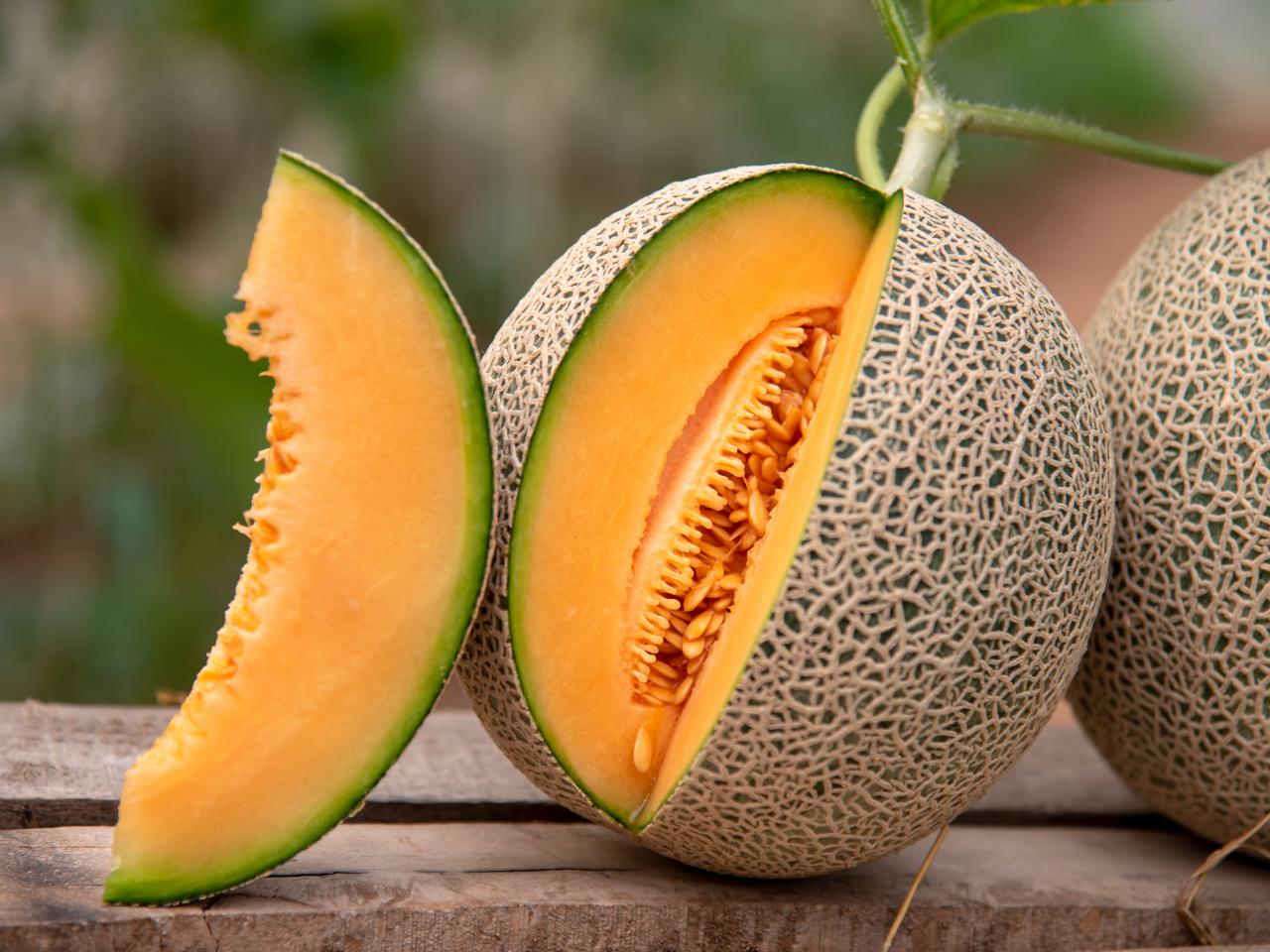
Did you know that cantaloupe is not just a tasty summer treat but also a powerhouse of nutrients? This juicy fruit, often enjoyed in fruit salads or as a refreshing snack, packs a punch when it comes to health benefits. Cantaloupe is rich in vitamins A and C, which are essential for good vision and a strong immune system. Additionally, it contains antioxidants that help fight off free radicals, keeping your body healthy. But that's not all—cantaloupe is also low in calories and high in water content, making it a perfect choice for those looking to stay hydrated and maintain a healthy weight. Ready to learn more? Here are 25 fascinating facts about this delicious fruit that might surprise you!
Key Takeaways:
- Cantaloupe, also known as muskmelon, is a delicious fruit packed with vitamins, low in calories, and great for hydration. It's easy to grow and can be enjoyed in various dishes.
- Beyond its tasty appeal, cantaloupe offers health benefits such as antioxidants, heart and eye health support, and anti-inflammatory properties. It even has a fun place in popular culture!
What is Cantaloupe?
Cantaloupe, also known as muskmelon, is a popular summer fruit enjoyed for its sweet, juicy flesh. It belongs to the Cucurbitaceae family, which includes cucumbers, pumpkins, and squash. Here are some fascinating facts about this delicious fruit.
-
Cantaloupe Origin: Cantaloupes originated in Persia (modern-day Iran) and were later cultivated in ancient Egypt and Greece.
-
Name Origin: The name "cantaloupe" comes from the Italian village of Cantalupo, where the fruit was first cultivated in Europe.
-
Two Varieties: There are two main varieties of cantaloupe: the European cantaloupe with a ribbed, light green skin and the North American cantaloupe with a netted, orange skin.
Nutritional Benefits of Cantaloupe
Cantaloupe is not only tasty but also packed with essential nutrients. Let's explore some of the health benefits it offers.
-
Rich in Vitamins: Cantaloupe is an excellent source of vitamins A and C, which are vital for immune function and skin health.
-
Low in Calories: One cup of cantaloupe contains only about 60 calories, making it a great option for those watching their calorie intake.
-
Hydration: Composed of approximately 90% water, cantaloupe helps keep you hydrated, especially during hot summer days.
-
Fiber Content: This fruit provides a good amount of dietary fiber, aiding in digestion and promoting a healthy gut.
Growing Cantaloupe
Growing cantaloupe can be a rewarding experience for gardeners. Here are some interesting facts about cultivating this fruit.
-
Warm Climate: Cantaloupes thrive in warm climates with plenty of sunlight. They require a growing season of at least 80-100 days.
-
Soil Preference: These melons prefer well-drained, sandy soil with a pH between 6.0 and 6.8.
-
Pollination: Bees play a crucial role in pollinating cantaloupe flowers. Without bees, fruit production would be significantly reduced.
-
Harvest Time: Cantaloupes are typically ready for harvest when they easily detach from the vine with a gentle tug.
Culinary Uses of Cantaloupe
Cantaloupe is versatile in the kitchen and can be used in various dishes. Here are some ways to enjoy this fruit.
-
Fresh Slices: The simplest way to enjoy cantaloupe is by slicing it and eating it fresh.
-
Smoothies: Blend cantaloupe with other fruits and yogurt for a refreshing smoothie.
-
Salads: Add cantaloupe chunks to fruit salads or mix with greens, nuts, and cheese for a savory twist.
-
Desserts: Use cantaloupe in sorbets, ice creams, or even as a topping for cakes and tarts.
Fun Facts About Cantaloupe
Cantaloupe has some quirky and fun aspects that make it even more interesting. Check out these fun facts.
-
Muskmelon: The term "muskmelon" comes from the musky aroma that ripe cantaloupes emit.
-
World Record: The heaviest cantaloupe ever recorded weighed 67.5 pounds and was grown in Alaska.
-
Symbolism: In some cultures, cantaloupe symbolizes fertility and abundance.
-
Cantaloupe Day: August 2nd is celebrated as National Cantaloupe Day in the United States.
Health Benefits of Cantaloupe
Beyond basic nutrition, cantaloupe offers several health benefits that might surprise you.
-
Antioxidants: Cantaloupe contains antioxidants like beta-carotene, which help combat free radicals in the body.
-
Heart Health: The potassium in cantaloupe can help regulate blood pressure and support heart health.
-
Eye Health: Vitamin A in cantaloupe is essential for maintaining good vision and preventing age-related eye conditions.
-
Anti-Inflammatory: The phytonutrients in cantaloupe have anti-inflammatory properties that can help reduce inflammation in the body.
Cantaloupe in Popular Culture
Cantaloupe has made its mark in various aspects of popular culture. Here are some notable mentions.
Final Slice of Cantaloupe Knowledge
Cantaloupes aren't just tasty; they're packed with vitamins and minerals that boost health. From vitamin C to potassium, these melons offer a lot. They help with hydration due to their high water content, making them perfect for hot days. Plus, their antioxidants can support your immune system.
Knowing how to pick a ripe cantaloupe is key. Look for a sweet smell and a slight give when pressed. Store them properly to keep them fresh longer. Whether you enjoy them in a fruit salad, smoothie, or just on their own, cantaloupes are a versatile fruit.
So next time you're at the market, grab a cantaloupe. Your body will thank you for the nutrients and your taste buds will love the sweet, juicy flavor. Enjoy the benefits and deliciousness of this amazing fruit!
Frequently Asked Questions
Was this page helpful?
Our commitment to delivering trustworthy and engaging content is at the heart of what we do. Each fact on our site is contributed by real users like you, bringing a wealth of diverse insights and information. To ensure the highest standards of accuracy and reliability, our dedicated editors meticulously review each submission. This process guarantees that the facts we share are not only fascinating but also credible. Trust in our commitment to quality and authenticity as you explore and learn with us.


